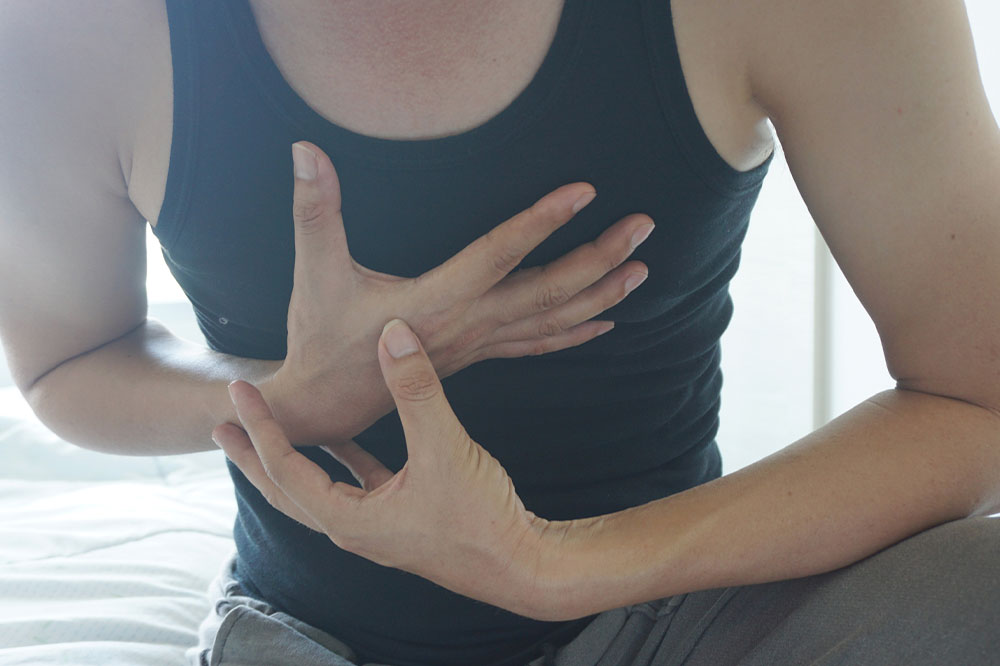5 pain symptoms that should not be ignored

Most people with moderate pain in a particular area may not consult a doctor. While the pain can seem harmless, it may be associated with an underlying health issue. Furthermore, if left untreated, these run-of-the-mill aches can become chronic and affect day-to-day life. Hence, it’s considered best to keep an eye out for specific pain symptoms and, if noticed, consult a healthcare professional. So, below are some pain symptoms that should not be ignored.
Common pain symptoms that should not be ignored
Typically, as one grows older, one can experience bouts of pain which can be written off as a part of aging. However, pain in any body part, especially new and unexplainable ones, should be checked by certified doctors. This is because some types of pain symptoms can indicate serious issues. Therefore, it is recommended that one keep an eye out for the pain symptoms mentioned below.
Chest pain
Today, heart disease can be considered one of the most common conditions affecting older adults. Moreover, heart issues such as atrial fibrillation, coronary heart disease, and heart failure are recurrent reasons that can require hospital visits. Therefore, older adults showing any signs of chest pain must be evaluated at the earliest.
Additionally, one must remember that heart attacks can manifest in different ways. While for some, it can be in the form of sudden crushing pain in the chest, for others, it can be heaviness or tightness in the area accompanied by breathing difficulties. Some other symptoms that can be experienced with chest pain are fatigue, dizziness, and shortness of breath.
Besides heart attacks, chest pain can also be caused due to the movement of a blood clot to either the lungs or the heart – a life-threatening issue that requires immediate treatment.
Painful urination
This pain symptom can be a sign of something serious, especially in men, where it could indicate the development of certain sexually transmitted diseases ( STDs). So, one must look out for tingling, burning, or pain either during urination or afterward, as it has been associated with gonorrhea in men.
With that being said, painful urination could also indicate other health issues such as urinary tract infection ( UTI) ( more common in women), kidney stones, and even bladder stones.
Severe headaches
One of the most common pain symptoms experienced by patients is headaches. While most mild headaches are not considered serious medical problems, there is an exception – post-exertion headaches that develop suddenly. These types of headaches could indicate an aneurysm, which is bleeding in the brain. If one experiences sudden, severe headaches, it is important to seek emergency medical attention. MRIs (Magnetic Resonance Imaging) and CT scans may be necessary to determine the cause of the headache.
Plus, if one is experiencing an increase in the frequency and intensity of headaches, it is best to get it checked at the earliest. This way, one can rule out life-threatening health issues such as cerebral hemorrhage and brain tumors.
Backpain with incontinence or numbness in the pelvis
Although back pain is incredibly common, affecting most people at some point in their lives, one must remember that not all types of pain are the same. Some forms of back pain, specifically the ones accompanied by symptoms such as incontinence – an urge to urinate followed by the involuntary loss of urine and numbness in the groin or glutes area can signify serious issues. This includes rare conditions like cauda equina syndrome, which is caused due to nerve compression.
In such cases, healthcare professionals suggest patients seek medical attention immediately. If not, chances are that one may never recover certain bodily functions.
Severe pain in the abdomen
Abdominal pain is a common issue caused by simple digestive problems like gas. However, severe abdominal pain is often caused by gallstones, pancreatitis, and appendicitis. It’s important to note that the abovementioned issues can cause pain in different parts of the abdomen. For instance, appendicitis is characterized by pain in the right lower section causing additional symptoms such as fever, vomiting, and nausea. On the other hand, gallstones can lead to pain in the right upper section, often triggered by consuming fatty meals.
So, if one experiences sudden and excruciating pain in the abdomen area, which seems to be getting worse, one must consult a doctor to pave the way for examination and diagnosis.
In addition to the abovementioned pain symptoms that should not be ignored, one can look out for digestive issues and sudden eye pain.



